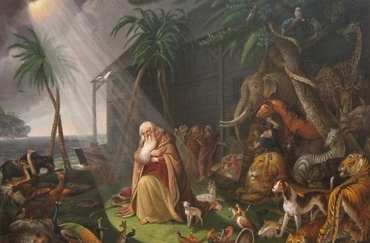14
然而我要使他們看守殿宇,辦理其中的一切事,並做其內一切當做之工。
192. "'And he shall go out no more.'" This symbolically means that they will remain in that church to eternity, as is apparent without explanation.

In Genesis 1:24, beasts signify the things of man's will or loves. (Arcana Coelestia 44, 46)
In Genesis 9:10, beasts signify all that was living in the man of the Ancient Church, and also what belonged to his new will; likewise the lower things of his understanding and the will therefrom. (Arcana Coelestia 1026-1029)
In Psalm 104:20, beasts signify affections longing to be instructed, or spiritually nourished. (Apocalypse Explained 650[10])
In Luke 10:35, since the beast was a donkey, this signifies to instruct another according to his capability. (Apocalypse Explained 1154)
The beast of the south (Isaiah 30:6) signifies people who are principled in the knowledges of good and of truth, but do not apply them to life and instead to science.
Every beast and creeping thing (Genesis 8:19) signifies the goodnesses of the internal and external man.
"Beasts" represent the affection for doing good things, a true desire to do them from the heart. In the negative sense, "beasts" stand for the lust to do evil.
The beast ascending out of the sea (Revelation 13:1) signifies reasonings from the natural man confirming the separation of faith from life.
(Izinkomba: Apocalypse Explained 13, 773; Revelation 13:11)